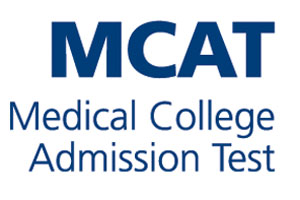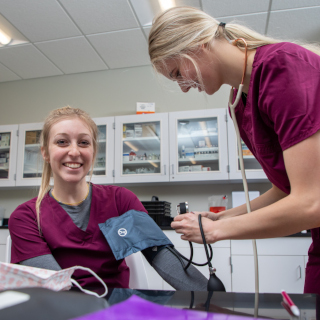Admission Exams
Most health professions schools require students to take a standardized admission exam as a part of the application process. Exams required for specific health profession schools are listed below. Click on the examination name for more information about each test, and check out the programs pages for more information on which examination is required for each type of health profession school.
-
MCAT (Medical College Admission Test)
-
DAT (Dental Admission Test)
-
OAT (Optometry Admission Test)
-
GRE (Graduate Record Exam)
MCAT (Medical College Admission Test)
What is the MCAT?
The MCAT (Medical College Admissions Test) is a 7.5 hour standardized exam required for entry to most U.S. medical schools (allopathic, osteopathic, podiatric & veterinary medicine). The MCAT is administered on computer. The test is used to assess “the examinee's problem solving, critical thinking, and knowledge of science concepts and principles prerequisite to the study of medicine” (AAMC, 2013). The current exam consists of three subsections: physical sciences, verbal reasoning, and biological sciences. The MCAT is changing significantly for all test takers beginning in 2015. Specifically,

the writing sample (a part of exams taken in 2012 and earlier) is being eliminated. Further, the test will now include a social and behavioral sciences section, which aims to "recognize the importance of socio-cultural and
health outcomes" (AAMC, Preview Guide for MCAT 2015, November 2011). There will also be a new critical analysis and reasoning skills section, and the natural sciences section will incorporate more biochemistry questions to reflect changes in medical education.behavioral determinants of health &
Please refer to the MCAT website for details regarding registration, test dates, test locations and exam content.
MCAT Preparation
Overview
The MCAT tests students in terms of content and cognitive skill and is one of the main metrics used by admissions committees at medical schools to help determine a student’s academic capabilities. To begin preparing, students should first become familiar with the AAMC’s MCAT website. This site details information regarding the exam itself, how to prepare & register, what students will experience on test day, scoring, and frequently asked questions.
Start your preparations early. While the MCAT is an exam that you can study for, you cannot “cram” for this test. Be aware that you are not allowed to use notecards with formulae or equations and calculators are not permitted. Study without continually referring to and using these tools in order to improve your skills. Improve your mental math, long division, and multiplication skills as well as your familiarity with logarithms and fractions.
Study Materials
A number of commercial review courses and other review materials are available to help prepare students to take the MCAT. Many students find study guides, formal courses, video-based courses, online courses, and private tutoring useful as they prepare. Check with the Pre-Med office for course scholarships, print materials you can borrow, and to sign up for a hosted Practice MCAT day (typically offered in the spring each year).
Preparatory Courses
Practice MCAT
Still Have Questions?
One important thing to remember throughout your application/MCAT process is that there are always people willing to help you out. If you still have any questions at all regarding the MCAT you should contact Dr. Pershouse or your friendly neighborhood Pre-Med Club. If you would simply like to sit down and to talk to someone who has been through the process already and would be able to offer advice, the Pre-Med Club can put you in contact with someone who can help. These resources are here to help you and you should take advantage of them.
